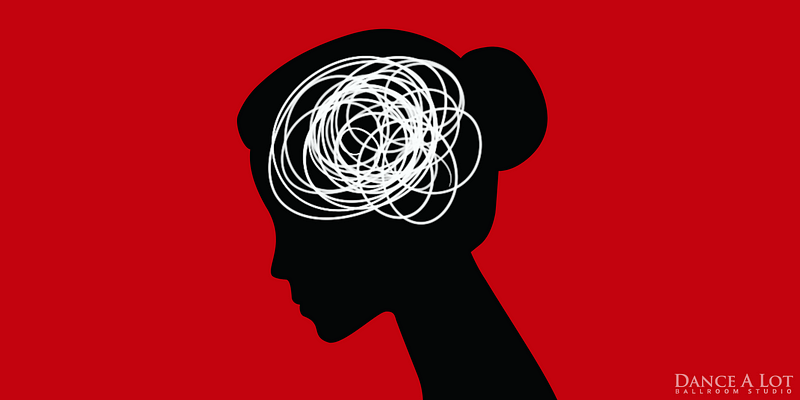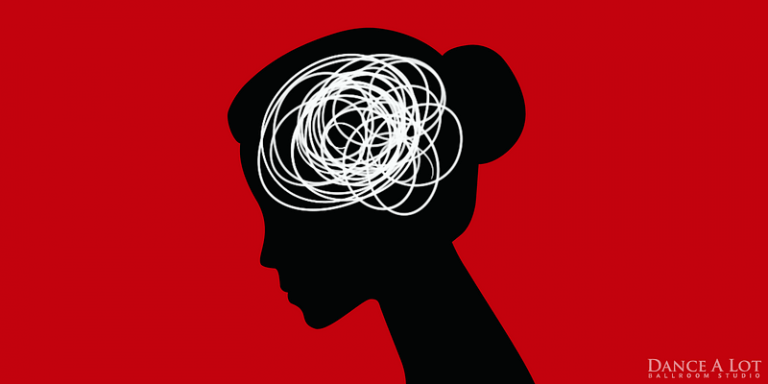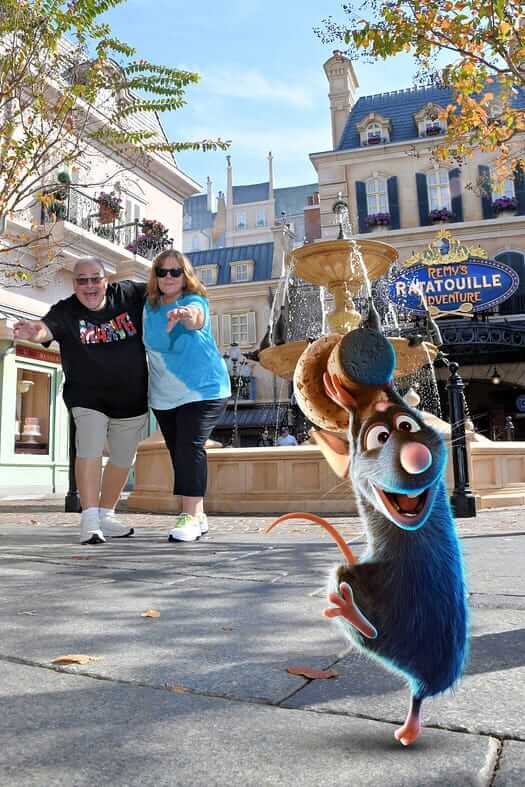Being knowledgeable about what is anxiety and what is its cause, is fundamental to finding a successful plan to battle it and deliver your pick performance every time.
by Georgi Kanev

What Is a Competition and Is It Good?
Ballroom dance competitions are glamorous formal social gatherings, where dancers put their best foot forward — dresses, make-up, new choreographies, etc. It’s where you can demonstrate your expertise and where enjoy yourself. As glamorous and rewarding as
competitions are, every dancer, at least once in their dance career, has felt anxious before a dance sport competition or a stage performance.
As humans, we naturally compare ourselves to others to see how we stack up. The comparison process is a good and healthy part of life for it provides us with information on our progress and future development.
In 1954, the American psychologist Leon Festinger proposed his Social Comparison Theory, which centers on the belief that there is a drive within individuals to gain accurate self-evaluations. People compare themselves to others in order to reduce uncertainty in their own opinions and abilities and to define themselves. Leon hypothesizes, that this drive refers to the value that is placed on doing better and better. So, in other words, comparison (and thus, competition) acts as a criterion so that we can better grasp our place in the world and our place among other human beings.
The dilemma comes when our comparison process creates a pattern of little ANTs — Automatic Negative Thoughts. These pesky doubts, worries, and fears take over your thought pattern and turn your inner dialogue from “I’m not as skilled as that dancer, so let me learn from him/her,” to “He/she is so much better than me and I’m terrible so I might as well just give up and not try.” Sadly, instead of using competition as a learning tool, dancers often times treat it as a way to support and fuel their negative self-image. It’s destructive self-talk that puts great negative pressure on them, leads to enhanced anxiety, and ultimately hinders the dancer’s performance.
Let’s investigate where these ANTS originate from — knowing your enemy is a half-won battle.
Anxiety happens as a result of fear and because of our desire to succeed. It’s the body’s natural reaction for self-defense against outside stimuli, which triggers the nervous system, and floods the bloodstream with hormones. This process prepares the organism to react by either responding or fleeing, also commonly known as the fight-or-flight mechanism.
ANTs Triggers and what is the “Zone”
Being an amateur with zero or little experience, you’re more likely to experience anxiety that can interfere with your performance. This can be explained by having to deal with feelings you are unable to control or even feelings you never felt before.
Examples of those triggers, preventing the dancers to get into the “zone” are:
· Focus on outcomes
· Social approval
· Fear of failure
· Fear of mistakes
· Low confidence/doubt
· Training mindset/low trust
· Perfectionism
· Expectations/judgmental
· Worry about what the coaches think, say or do
Symptoms
Stress comes in many shapes, and here are some very common symptoms that many dancers experience before and during competitions:
· cold hands
· increased pulse and uneven breathing
· shortness of breath
· racing mind
· tense and rigid body; it is not responsive to what your mind wants to do.
· extreme sweating
· dry mouth
· shaking hands, legs
· nausea and feeling uneasy “butterflies” in your stomach
· feeling of not being hungry
· forgetting steps and patterns
· impatience and irritability
Being able to identify the signs of anxiety is the first step to self-awareness and battling it. Remember that many times failures have success written on them, which is dimmed by our need for perfection.
Mentally resilient athletes are at an advantage because they have the capacity to tap into the “zone” more consistently in competition. The “zone” is a state of supreme focus that helps athletes in all sports (not just dancing) to perform at their peak potential. Attention is focused on the present and only on thoughts that will help successfully execute the task.
When they are in the zone, fear of failure, worry, doubt, indecision, and other mental traps do not enter their focus. In this state of concentration, there are no mental distractions to compete for their attention.
Many inexperienced athletes view the zone as this magical, hard-to-obtain state of mind. But the zone is really not that complicated or hard to achieve. Most of us have been in the zone at one time or another when a task seemed effortless, time stood still, and everything flowed.
The zone is simply a mental state of total involvement in the present moment without the mental burden of worry, doubt, or fear about results. Building strong mental habits takes time just as physical training does. And as experienced athletes, you can turn your competition anxiety into a loving experience. It just takes practice.
How to thrive under pressure
Worry and confidence are at opposite ends of the spectrum; when confidence is strong, it tends to crowd worry out of the mind.
Here are some proven methods how to battle and reduce anxiety:
1. Good preparation — Be as prepared as possible. Self-confidence tends to be highest when you believe in your ability and feel that you have properly prepared for a competition.
2. Get to know the surroundings and the location — Get familiar with the dance room and the dance floor.
3. Have clear realistic goals — Set goals that match your experience and are attainable.
4. Be Present — Focus your mind on the present moment, the now, not about what happened in the past or what the audience, judges, instructor, or yourself might think after the fact. Let those thoughts about the past and future go and be in
the moment with complete focus on your performance without any attachment to the result.
5. Breathe — Practice deep breathing to signal to your parasympathetic nervous system (the one that focuses on rest and digesting!) that you are safe and secure. ‘In’ through the nose, ‘Out’ through the mouth. Nice deep inhales, and slow controlled exhales.
6. Focus on the PROCESS, not the outcome. Think of the competition as your best practice. Keep in mind that things can happen — you or your partner might lose balance, you can do the wrong step, dance off music, someone can cut you off, and you can even fall. If it happens, so be it, and just keep dancing. Accept the fact that there might be unforeseen circumstances, which you’ll be not able to control. Focus on what you can control not on what you can’t.
7. Stop and reflect — Are the feelings real or they’re a figment of your imagination? Are they really helping you perform your best or are hindering your performance?
8. Analyze — Examine the evidence for the interpretation of your negative ANTs. Will your thoughts help you dance your absolute best? If so keep them! If not — do what you do with ants…squash them.
9. Tell someone — Make yourself accountable by telling someone what you want to achieve — it’s scary but we all need that kick in the bum sometimes in order to achieve great things.
10. Be thankful — Wake up with a thankful heart — for the air you breathe, for this day, for the opportunity to be at this competition, for the experience, for the ability to move freely, for your dance partner, and for the simple privilege of dancing. Practicing thankfulness is one of the best ways to get your focus on what is really important
11. Pray — For those who believe in God, praying is their strongest weapon; it humbles the person to know that God is in charge, and it relaxes the mind taking tremendous pressure off their mind. The Bible says “I can do all things through Christ who strengthens me” (Philippians 4:13) and to “Fix your thoughts on what is true, and honorable, and right, and pure, and lovely, and admirable” (Philippians 4:8). A Christian athlete will use positive mental imagery when they are nervous or performing well, and will believe they can reach their goals because God has transformed them to have the potential to succeed and in turn this will give the person high self-confidence. Using positive self-talk such as this will build up your confidence if you feel you have the ability to succeed.
12. Have fan support — Ask family and friends to come and root you on. Have them make fun posters and cheer you on at the competition.
13. Build a “team spirit” — Make friends with other competitors and cheer them on. 14. Progressive Muscle Relaxation (PMR) — Practice tensing and relaxing of all of the major muscles in your body in order from your head to your feet.
15. Practice Positive Winning Attitude — Understand that everything that happens during competition needs to happen. And only two things can result. Either you perform well/win, and you can be proud of your accomplishment, or you learn what you need to improve. Either way, you look at it, you win. This is what is called a win-win attitude perspective! You can want to win badly, but at the same time tell yourself that there’s nothing to lose. Each competition, win or lose, is a learning experience.
Final thoughts
Dancing in itself is more of an art than it is a sport — there’s no stopwatch or baton to pass on. It is a subjective form of self-expression through the art of movement and music, so as such one must embrace winning as well as a failure as an opportunity to learn and grow. Competition by itself is good but anxiety, caused by Automated Negative Thoughts, impacts dancer’s performance, keeping him or her away from their peak potential.
David Villa says in Forbes Magazine: “In my eye, the definition of a winner is someone who gives 100% of their effort in preparation for and during competition 100% of the time, regardless of the circumstances faced before them. Winning involves more than beating an opponent or the final score on the board. A person can be a winner as long as they give everything they’ve got.”
The best way to cope with competition anxiety as we saw from the example of the successful athletes is to get into the “zone.”
From competition to competition just remind yourself, that YOU ARE getting better with each competition and with every moment spent on the dance floor. And always give 100% of yourself.
We all strive for success, but success is more often than not elusive — found at the intersection between preparation and opportunity and a function of your audience’s expectations as well as your performance. One must be brave, and creative but also curious to get out there and compete with others. So be brave!
To your success,
Resources:
- https://www.verywellmind.com/how-do-i-handle-performance-anxiety-as-an-athlete-3024337
- https://www.verywellmind.com/reduce-tension-with-progressive-muscle-relaxation-3144608
- https://en.wikipedia.org/wiki/Social_comparison_theory
- https://sdlab.fas.harvard.edu/cognitive-reappraisal/identifying-negative-automatic-thought-patterns
- Free Mental Game Report: Getting in “The Zone” by MEA — Mental Edge Athletics
- https://www.sportpsychologytoday.com/guest-author/christian-sport-psychology/
- https://www.behindthesparkleblog.com/home/dealing-with-performance-anxiety



